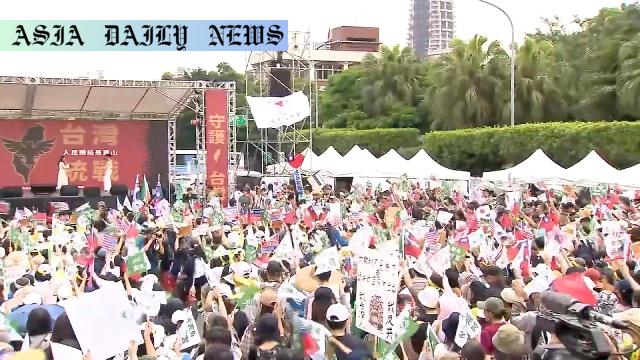Legislative Recall: Recall efforts heat up amidst sharp partisan divides as 50 Taiwanese lawmakers face dismissal campaigns.
– Recall campaigns target 50 lawmakers in Taiwan amidst sharp partisan division.
– The ruling DPP government aims to secure a majority through unseating opposition lawmakers.
– Opposition lawmakers escalate their own signature drives to recall ruling party members.
– Partisan confrontation hinders governmental cooperation on key issues like US tariffs and Chinese espionage.

Introduction to Legislative Recall Efforts in Taiwan
The political landscape in Taiwan is experiencing increasing turbulence as recall campaigns target nearly half of the Legislative Yuan’s members. This initiative, fueled by intense partisan divisions, spotlights Taiwan’s polarized political environment. The campaigns currently target 50 lawmakers, with 34 belonging to the Kuomintang (KMT), 15 from the Democratic Progressive Party (DPP), and one independent politician aligned with KMT. These efforts are emblematic of escalating tensions in the Legislative Yuan, where the KMT holds a slight majority of seats over the DPP, led by President Lai Ching-te.
Partisan Dynamics Driving the Recall Campaigns
The opposition-controlled legislature is a major factor in Taiwan’s current political scenario. Despite being in the minority, the ruling DPP hopes to leverage recall campaigns to solidify a legislative majority and, in turn, implement their governance agenda more efficiently. A civic group aligned with the DPP recently staged a large rally in Taipei, mobilizing public support to unseat opposition lawmakers. Signatures were collected at this rally to initiate referendums for recalling lawmakers perceived as obstructing DPP’s policies.
In response, the opposition bloc has launched its own recall efforts aimed at DPP members. For the Kuomintang and its independent allies, these campaigns are crucial demonstrations of strength in the face of a ruling party that has been struggling to sway the legislative balance to its favor. Both parties accuse each other of undermining the democratic fabric of Taiwan with recall measures driven by narrow partisan motives.
The Broader Implications of Escalating Political Campaigns
For observers, the recall campaigns are indicative of a deepening partisan divide, raising concerns over the future of Taiwan’s democratic governance. President Lai has attempted to bridge this gulf by urging both factions to collaborate on pressing challenges such as combating China’s espionage operations and addressing economic pressures from U.S. trade policies. However, these appeals for unity have found little resonance among lawmakers entrenched in political rivalry. The persistent divide hampers Taiwan’s resilience against external pressures, limiting the nation’s ability to tackle critical issues with a united front.
Public Reception and Potential Fallout
The recall campaigns have not only galvanized partisan groups but also drawn mixed reactions from the Taiwanese public. While some see these forays as democratic tools ensuring legislative accountability, others have criticized them as destabilizing distractions from governance. As lawmakers on both sides escalate rhetoric and signature collection efforts, there is a growing fear that these campaigns could erode public trust in the political institution. If recall bids succeed, the Legislative Yuan could witness a reshuffling of political alliances with unpredictable consequences on policymaking and governance.
Conclusion
The legislative recall efforts in Taiwan underscore the high stakes of Taiwan’s political struggle and the extent of partisan divisions. Both the DPP and KMT appear unwilling to relent, staging recall bids as strategic maneuvers rather than instruments of public service. Resolving this impasse will be a delicate task, requiring goodwill and compromise that currently seem in short supply. As these campaigns unfold, the broader implications for Taiwan’s democracy, governance, and regional security are worth monitoring closely.
Commentary
Taiwan’s Political Recall Campaigns: A Critical Reflection
The recall campaigns unfolding in Taiwan’s Legislative Yuan underscore not just the depth of the nation’s political divisions but also the lengths to which parties are willing to go in their pursuit of dominance. Beneath the accusations and counter-accusations lies a critical question: Are these campaigns genuinely about accountability, or are they merely tools for partisan power plays? For a country navigating escalating tensions with China and uncertain global trade dynamics, inward political strife is an unwelcome complication.
The Risks of Growing Partisan Polarization
Partisan polarization is not unique to Taiwan; however, the present recall efforts appear to exacerbate the risks of political instability. Instead of coming together to address external and internal challenges—such as U.S. tariff policies or cybersecurity against espionage—both the ruling and opposition camps are ensnared by adversarial tactics. Recall campaigns targeting nearly half of a nation’s lawmakers could easily be misused, undermining not only individual politicians but also democratic principles at large. If this trend continues unchecked, Taiwan could struggle to maintain focus on the pressing tasks at hand.
The Role of Civic Engagement in Shaping Governance
Public rallies and signature drives emphasize the central role of civic engagement in Taiwan’s political framework. However, this engagement must be coupled with a shared responsibility for fostering stability. While recalls may empower voters by providing a democratic check on elected leaders, pushing them to extremes could alienate the electorate in the long run. Politicians would do well to remember that legislative cooperation, not rivalry, forms the bedrock of good governance.
Conclusion
In summary, legislative recalls are double-edged swords. When wielded responsibly, they enhance democracy by holding leaders accountable. But Taiwan’s ongoing campaigns illustrate how these mechanisms can also deepen divides and distract from urgent national priorities. Moving forward, political stakeholders and civic groups alike must channel their energies toward bridging gaps, rather than widening them. Only through sustained collaboration can Taiwan effectively manage both its internal and external challenges—a goal that should transcend party lines.


